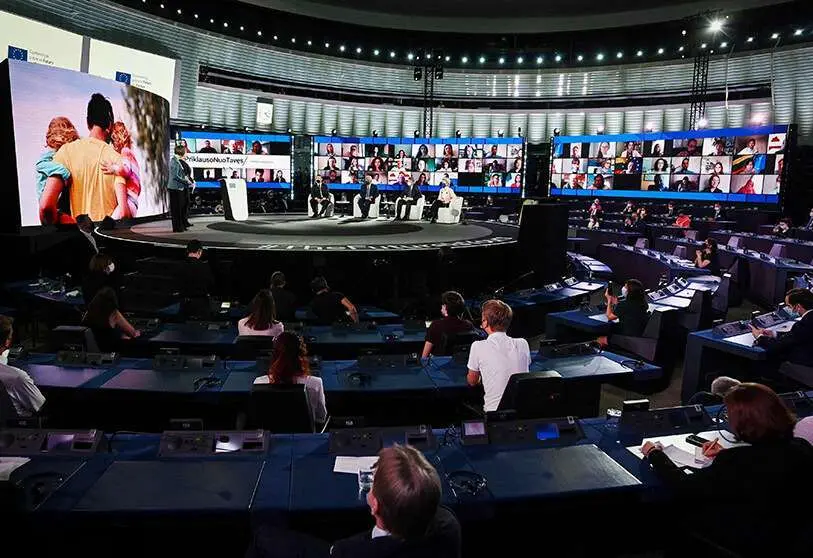The future towards a new Europe

Democracy, citizen participation and the defence of fundamental rights. These are the main pillars underpinning the project to create a new Europe, suited to the new challenges that our century demands. The new project of a revitalised and new Europe is part of the ambitious design of the Conference on the Future of Europe, which aims to build a bridge between the institutions and civil society so that the latter can play an active role in its construction.
In this sense, the President of France, Emmanuel Macron, has given the green light to the Conference's starting signal. In this vein, Macron declared in an unusually empty European Parliament due to the COVID pandemic that "our European democracy is one of compromise, of balance, which is a virtue that we must protect, but it is also a weakness when it drowns in its own procedures".
These procedures refer to a demand that has been prolonged and postponed until today. The lack of communication and active listening between the European institutions and the social demands of citizens has created a space of distance between the two sides, which has meant that European citizens feel neither heard nor represented by European bodies.

In this respect, the Conference promises to open a dialogue and to be formed on the basis of a mixed procedure between the citizens and the institutions, so that the demands are carried out from the bottom up. The Conference plenary will be made up of 433 members, 54 of whom will be representatives of the Member States, 108 MEPs, 3 members of the Commission, 18 elected members of the Economic and Social Committee and the Committee of the Regions, 108 national parliamentarians and 116 representatives of civil society.
The first meeting of the plenary assembly will take place on Saturday 19 June and will feature ten thematic groups. In addition, four panels, each consisting of 200 citizens, will be held on different topics. Similarly, the cities chosen to host them are Florence, Dublin, Maastricht and Natolin.

In this line, Spain will host the start of the Conference on the Future of Europe from 6 to 13 May on the occasion of the celebration of Europe Week after commemorating the Schuman Declaration on 9 May, a speech that managed to lay the foundations of the European Union to "contribute to world peace through concrete achievements".
The conference will also feature "citizens' panels" and proposes an online space for all those European citizens who wish to participate. In this respect, President Von der Leyen said last March that "citizens expectations are clear: they want to have their say on the future of Europe in matters that affect their lives. Our pledge today is also clear: we will listen to them and then we will act".

Against this new dynamic, the issues that will be discussed during the course of the debate range from the defence of democracy and fundamental rights to the creation of a "social, sustainable, creative and prosperous" Europe. Alongside this, the new European project aims to promote Europe's role in the world through a focus on promoting peace, stability and security, as well as strengthening international relations.
In this respect, the spirit of the Conference aims to "achieve a joint reflection among the members of the Union on the functioning of the Union, the challenges we have faced, and the options for the future".
Thus, the Conference actively encourages young people to "participate and share their ideas" in order to strengthen and activate the presence of young people in the construction of the new European plan. In this sense, the Conference is a democratic exercise that encourages the opening of public, open and inclusive debate with citizens on key issues that need to be addressed.








